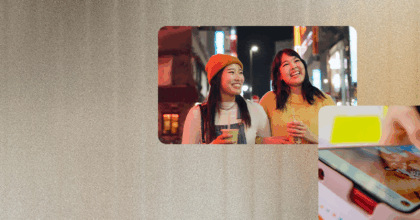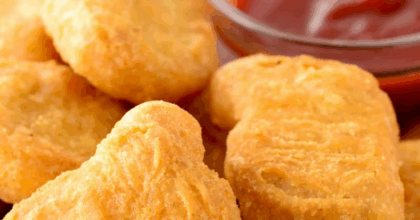Indian millennials are spending more on health expenditures
With COVID-19 affecting lifestyles for over two years now, it follows that health has become a higher priority for many consumers, including Millennials. According to new Mintel research, 43% of Indian Millennials* are spending more on healthy food/snack options. In addition, they are maintaining a high level of spending on activewear and accessories (41%) and in-home gym equipment (36%). Spending increases for Older Millennials** across these two categories.
Saptarshi Banerjee, Senior Lifestyle Research Analyst, Mintel Reports India, said:
“Millennials today make choices like eating healthy foods or exercising to feel better and reduce stress and anxiety. The emphasis on health is no longer limited to a single objective, implying that looking after both physical and mental health is a multifaceted endeavour.
“Given Millennials’ interest in holistic health, this creates an opportunity for food and drinks brands to appeal to the newly health-engaged consumers through fortifying products with vitamins and minerals, considering that only 12% of food and drink and healthcare launches in APAC over the last three years** have functional health claims.”
Rising stress levels among millennials call for a focus on mental health
The Mintel Trend Slow It All Down has examined how burnout and overwork have impacted consumers due to long hours and pressures at home and work. Furthermore, Mintel Global Consumer research finds that 41% of Indians aged 25-34 find their day-to-day life very stressful compared to just 22% of those aged 18-24. This has increased the demand for products and services catering to mental wellbeing, especially for those early on in their careers.
“Workplace stress levels are closely related to age, with Older Millennials aged 32-40 seeing stress and anxiety as motivators to live a healthy lifestyle. This demographic is naturally concerned about their career success and financial wellbeing.
“Despite the growing issue of stress and burnout, products and services for emotional and mental wellbeing are not widely available to the general public. Brands can promote societal discussions about mental health by developing campaigns or platforms that allow consumers to assess their mental health and can assist consumers by providing opportunities for them to unwind and enjoy some ‘me’ time,” Banerjee said.
Make health gadgets accessible to consumers in lower socio-economic groups
Technological advancements are increasing interest in digital solutions for mental health, diet, and exercise information. The pandemic has increased the use of health-related technology, such as virtual doctors and oximeters.
Older Millennials (36%) are spending more on wearables in order to keep track of their health, especially with rising lifestyle-related disorders in this age group.
However, with the economic impact of the pandemic still top of mind, brands must consider price sensitivity as a primary barrier to purchasing wellness products. Over one-third of Millennials from lower socioeconomic status (e.g. Sec B and Sec C) agree that they do not have the means to track their health, which can be attributed to the high price point of health-related devices.
“Given that 89% of Indians aged 25-34**** own a smartphone, brands can consider more approachable health tracking methods, such as mobile apps, rather than relying solely on wearables. They can also educate consumers on the benefits of health devices in credible and easy-to-understand ways (e.g. infographics and medical demonstrations/claims) to illustrate their value. Food offers, coupons or discounts can encourage health tracking,” Banerjee added.
Social media influencers as advocates of healthy living
Nearly four in 10 Indian millennials agree that online influencers have inspired them to better care for their health. Mintel Trend Help Me Help Myself discusses how brands can use social media to create spaces where consumers can share their health choices. For instance, food channels on social media platforms are now widely accessible, boasting hundreds if not thousands of followers.
“Brands can partner with influencers to promote healthy lifestyles or use examples and scenarios from their own experiences. Creating groups or influencer channels can help form a community of like-minded individuals to discuss health topics that are relevant to them, from nutrition to exercise and mental wellness.
“Millennials are reaching an age where they are beginning to develop lifestyle diseases. The pandemic has served as a stark reminder that health is transient and requires effort to maintain at all times. As consumers take a more proactive approach to health, brands will gain a competitive advantage through products and services that can deliver on holistic wellness,” Banerjee concluded.
Notes to the editors
*In the last six months prior to January 2022; 1,419 Indian internet users aged 25-40
**aged 32-40
***between February 2019 to January 2022; Mintel Global New Products Database (GNPD)
****1,000 Indian internet users aged 18+
Additional information on consumer trends and interviews with the analyst are available upon request from the Mintel Press Office.
For the latest in consumer and industry news, top trends and market perspectives, stay tuned to Mintel News featuring commentary from Mintel’s team of global category analysts.
-
 Discover your next big breakthroughGet smart fast with our exclusive market research reports, delivering the latest data, innovation, trends and strategic recommendations....View Reports
Discover your next big breakthroughGet smart fast with our exclusive market research reports, delivering the latest data, innovation, trends and strategic recommendations....View Reports -
 2026 Global PredictionsOur Predictions go beyond traditional trend analysis. Download to get the predictive intelligence and strategic framework to shape the future of your industry in 2026 and beyond. ...Download now
2026 Global PredictionsOur Predictions go beyond traditional trend analysis. Download to get the predictive intelligence and strategic framework to shape the future of your industry in 2026 and beyond. ...Download now -
Are you after more tailored solutions to help drive Consumer Demand, Market Expansion or Innovation Strategy?Ask for a customised strategic solution from Mintel Consulting today....Find out more






























